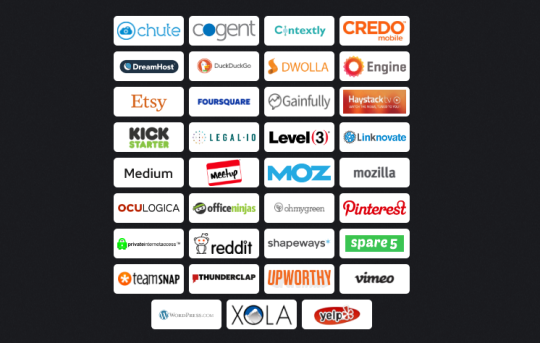59 Companies and Grassroots Groups to Push FCC on Zero-Rating; Call for Open, Public Process to Review Existing Zero-Rating Plans

For Immediate Release
Tuesday, May 24, 2016
Ahead of FCC open meeting, call for evaluation of zero-rating plans to be informed by a transparent, open process
WASHINGTON – Today, 59 companies and grassroots NGOs that sent a letter to the Federal Communications Commission (FCC) requesting an open, public process to inform its evaluation of the zero-rating plans offered by Comcast, AT&T, Verizon, and T-Mobile.
Signatories to the letter included 38 businesses that support a free and open Internet, including companies such as Pinterest, reddit, Etsy, Vimeo, Automattic, Yelp, CREDO Mobile, Cogent, Level 3, Medium, Mozilla, Union Square Ventures, Vimeo and Kickstarter. 21 civil society groups and coalitions representing diverse constituencies, including Center for Media Justice, 18 Million Rising, Center for Rural Strategies, Engine Advocacy, Fight for the Future, Demand Progress, Daily Kos, and Access Now, also signed on.
The letter’s signers reference the FCC’s open public process for the net neutrality ruling last year that saw nearly four million individuals make their voices heard. The letter was sent to the FCC before the Commission’s open meeting this Wednesday, May 25.
The letter states:
“In the Open Internet Order, the FCC declined to issue a bright-line rule against zero-rating, noting a lack of consensus on the issue in the record. However, in the time since the Order was released, ISPs have created a broad enough set of test cases that a decision on each of them would have much the same effect as a new rule, only without the same public participation and transparency. These decisions are too important to happen behind closed doors.”
The full letter and list of signatories can be found here: http://www.stayopenfcc.org/letter.pdf
Said Fight for the Future co-founder Tiffiniy Cheng, “If the FCC undercuts its own Open Internet rules by approving zero-rating plans, without even consulting the historic and diverse array of activists, academics, startups, and 3.7 million Internet users who weighed in to make these rules happen, it would be nothing less than appalling. That’s why we’re joining this call for an open process.”
The Open Internet rules under which the FCC would make these decisions exist thanks to comments from nearly 3.7 million people, hundreds of startups, activists, academics, and advocates.
Around the world, Tech companies, Internet users, and civil society organizations around the world have been demanding open process around these decisions—and participating in record numbers—most notably in India, where over 500 startups (http://blog.savetheinternet.in/startups-pm-letter/) and one million people (http://blog.savetheinternet.in/one-million-submissions/) weighed in to ban zero-rating, and in Europe, where a massive consultation on zero-rating and net neutrality rules is set to begin. (http://savetheinternet.eu/)
In the fight for net neutrality in the US, racial justice activists played an especially important role, countering cynical propaganda from cable and telecom companies, and making the case that the Open Internet was essential for media diversity and the ability of communities of color to organize.
The following are statements from letter signers:
Brad Burnham, Managing Partner, Union Square Ventures
“Anyone who is paying attention should be very worried about the future of the independent web. The flurry of decentralized, permissionless, innovation that characterized the early web is giving way to a homogenized experience delivered through a small number of dominant gatekeepers. If the FCC allows those dominant platforms to buy favored distribution from wireless carriers, that trend will accelerate. Early stage investors who fueled the innovation on the open web will forced to walk away from even the most creative ideas for fear they will never reach consumers.”
Steven Renderos, Senior Campaign Manager at the Center for Media Justice
“There’s too much at stake for communities of color to not have our voices included as the Federal Communications Commission considers how to address Zero-Rating data plans. The threat of a second class Internet experience posed by practices like Zero-Rating is the reason people of color fought so hard to ensure the FCC’s Net Neutrality rules applied to wireless as well. The best policymaking happens when communities most directly affected are part of that process, and the FCC can and should consider our voices before making any decisions.”
Holmes Wilson, Co-Founder, Fight For The Future
“We didn’t win the historic fight for net neutrality only to allow big telecom companies to tear it down with zero rating schemes. The FCC must hold an open process to consider these dangers to free expression”.
Mark Tseng Putterman, Media Justice Campaigner at 18MillionRising.org
“As American consumers and especially as Asian Americans and Pacific Islanders, Big Cable’s attack on Net Neutrality through zero-rating programs is an attack on our ability to communicate, access culturally relevant content, and organize online. Zero-rating programs that rely on arbitrary data caps and exempt some content from those caps are particularly harmful for demographics such as young Asian Americans that increasingly rely on data-intensive consumption of streaming video over traditional television.
An open and equal Internet plays a crucial role in providing outlets for AAPI civic and cultural engagement outside the mainstream avenues from which we are too often excluded. From the independent blogs we get our news from, to the viral AAPI YouTube celebrities who speak to our experiences, to the political power we harness through trending hashtags and online petitions, Net Neutrality provides spaces for us to thrive as consumers, content creators, and change-makers. We urge the FCC to curb the abilities of corporations to shape our habits online and to begin an open, public process to inform its evaluation of zero-rating programs.”
###
Contact:
Steven Renderos, Senior Campaign Manager at the Center for Media Justice, steven@mediajustice.org
Holmes Wilson, Co-Founder, Fight For The Future, hwilson@gmail.com, (614) 465-6371
Brad Burnham, Managing Partner, Union Square Ventures, brad@usv.com
Evan Engstrom, Acting Executive Director, Engine, 415-570-4455

